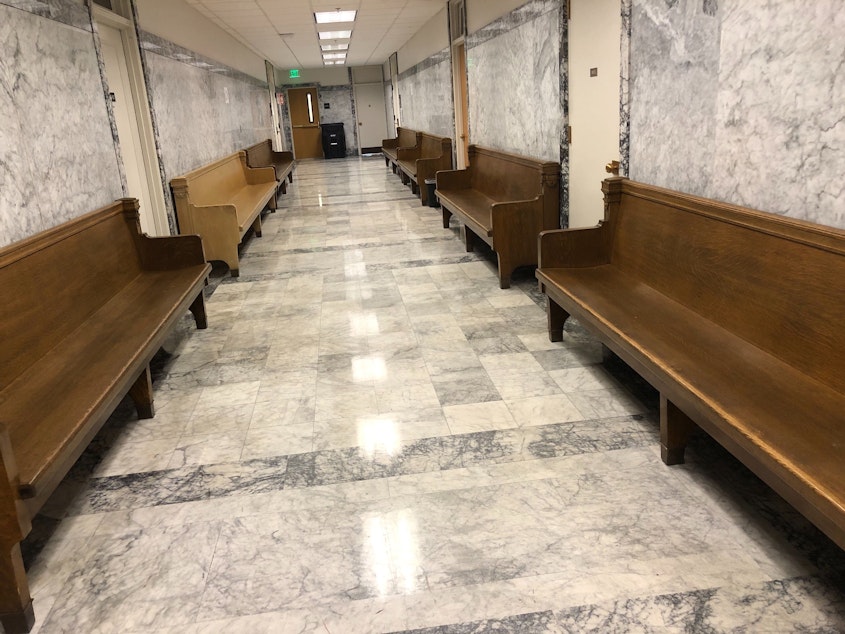King County suspends in-person jury trials through January 14

Jury trials in King County are facing yet another disruption due to the pandemic. But officials say the pandemic has taught them how to keep many court proceedings moving forward remotely.
King County Superior Court presiding judge Jim Rogers issued an emergency order this week putting in-person jury trials on hold through Jan. 14, to minimize the number of people in the court buildings.
“Fewer people means fewer chances of infection,” Rogers said.
His order states, “The court is in a unique position in that many witnesses, parties, and jurors are ordered to appear at the courthouse. Additionally the court has hundreds of employees who report to work at the courthouse daily. Both the vaccinated and unvaccinated must be allowed access to the courts.”
Rogers said employees must be vaccinated, but the public, jurors, and witnesses all have a right to enter the courthouse to watch or participate in the process. He said, “We can’t order them to be vaccinated, nor do we even test them or ask them when they come in. So we do the best we can.”
He said the court has also relied on public health guidance, masking requirements, and ventilation to mitigate the risks of transmission. Rogers said they deliberately kept the suspension as short as possible, to revisit it in hopes that the omicron surge will pass quickly and that at least some criminal trials can commence at that point.
Sponsored
Rogers’ three-year term as presiding judge ends Dec. 31, so it will be the incoming presiding judge, Patrick Oishi, who issues the next update. But Rogers noted, “We could come back with a few criminal jury trials and then ramp back up again in increasing numbers. It’s not an all-or-nothing decision.”
The emergency order has a more drastic impact on criminal trials than civil ones. Rogers said the constitutional right to face one’s accuser has been interpreted statewide as requiring that all criminal trials be held in person.
The suspension will likely exacerbate the county’s unprecedented backlog of criminal cases. But Rogers said during the pandemic the court has learned to conduct many hearings and even complex civil trials remotely.
Jurors are now questioned remotely in the selection process for both civil and criminal trials. “That is a very important innovation that has created so much more convenience for jurors, jurors love it and we think it’s highly effective,” Rogers said.
He said the Washington State Supreme Court now faces “a critical decision” in the next few months regarding whether some of those pandemic-inspired changes can be made permanent. The high court must sign off on “the passage of certain court rules that would institutionalize virtual jury selection and virtual civil trials,” Rogers said. (The rule change would allow virtual jury selection and civil trials to remain an option after current emergency orders expire).
Sponsored
Rogers said King County has led the nation in keeping the courts open and functioning during the pandemic.
“I think that we decided early on that we had to remain open whatever way we could, because of the importance of access to justice.”
King County has completed 300 jury trials since the pandemic started – that includes 70 remote civil trials. Rogers said to his knowledge, King County has done more trials than any other court system in the country.




